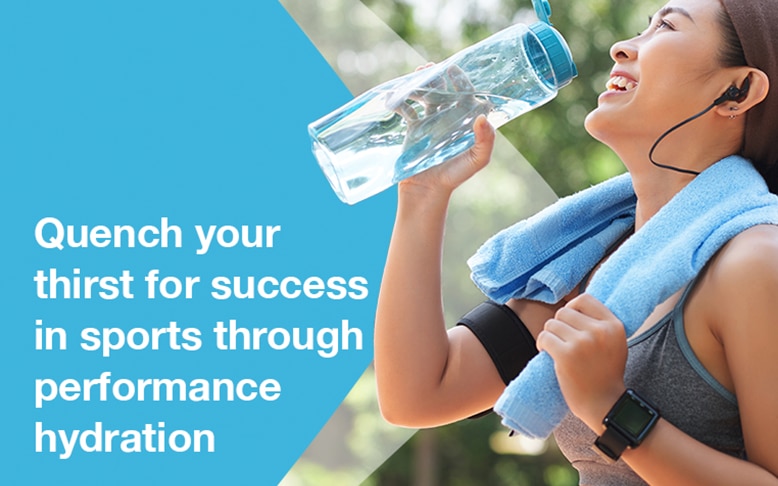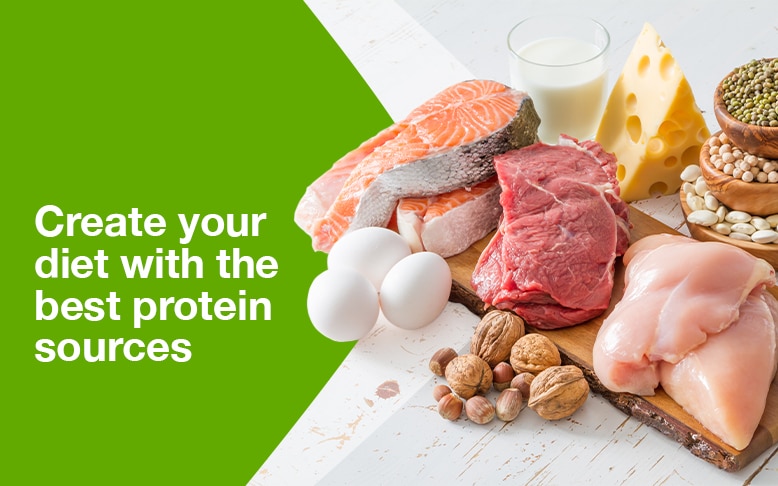Introduction
When we engage in sport whether on a professional, amateur, or recreational level, fatigue and soreness are commonly expected to occur. We may need to deal with it for a few days, or sometimes, up to months on end depending on how we go about in trying to manage it. The most common of these are muscle pain, dehydration, and lack of energy. This happens not only to those who lack proper physical activity but also to highly-trained sportspeople – or to put it bluntly, pain spares no one.
Recovery Nutrition should always be practiced, especially when one needs to bounce back from a previous session and compete in a subsequent event. In fact, the process of recovery contributes to an athlete’s chance for success, or at least a performance worth the crowd’s cheer.
There are many truths and falsehoods surrounding Recovery Nutrition, and we will try to uncover which has scientific basis and which has none; of course, with the help of our nutrition expert, Ms. Isabel Martinez.
In this second part of our interview article on Recovery Nutrition, our expert will continue to answer in detail some of the most important queries Nutrition Masterclass could think of.
Let’s start!
Myths related to Recovery Nutrition
NM: What are some myths related to Recovery Nutrition that you’d like to address?
Isabel:
1. Window of Opportunity
‘Window of opportunity’ concerns long-term recovery. It’s been said that there’s a limited time post exercise during which you can introduce recovery nutrition and achieve optimal results. However, recent evidence has challenged this theory, showing that this anabolic “window of opportunity” is not that narrow.
I’ve mentioned earlier that exercise stimulates muscle protein synthesis, and this stimulation remains increased for up to 48 hours, and this duration is also true for muscle protein breakdown. As a result, the protein balance improves over time following exercise.
The assumption behind the window of opportunity comes when the athlete exercises in a fasted state. The exercise begins in an already negative balance, and then the breakdown secondary to exercises causes the balance to become more negative and persists in the post-exercise period. Thus, providing immediate nutrition given this circumstance, would help in improving the balance and push it to a positive state.
Data has shown flexibility when it comes to timing, so there’s no need to hurry and slam a shake right when an athlete gets off the court. This is especially true if an athlete will eat a meal within the next few hours after a session.
2. Protein is the number 1 nutrient for rapid recovery and optimal performance
The role of protein in exercise performance is supported by a wealth of information, especially on how important it is for protein synthesis and long-term adaptation. However, when it comes to immediate recovery, does protein actually have a role?
When it comes to improving the performance in a second exercise bout, there’s mixed results. For sports with a tournament format (e.g., two competitions separated by 2 – 3 hours), the priority should be making sure an athlete competes again in a well-hydrated and fuelled state. The effect of protein on subsequent performance is minimal, therefore protein is not essential for immediate post-exercise recovery. Protein is more important for adaptation and long-term recovery.

3. Combining carbohydrate and protein can help hasten the repletion of glycogen
Yes, adding protein to post-exercise exercise nutrition can accelerate the refuelling process; however, does this mean better performance as well?
The effect on performance would only be relevant for sports wherein muscle glycogen availability actually limits performance (e.g. longer duration events). Majority of the studies also show that if an athlete ingests the adequate amount of carbohydrate for glycogen resynthesis, then there would be no added effect from protein. Protein and carbohydrate co-ingestion was only beneficial in studies wherein individuals were only consuming around 0.8 g/kg body weight of carbohydrate or less.
Another thing to note is that protein can add satiety or can make an individual feel full. So if we are talking about getting an athlete up and running for a second event within a limited time, then carbohydrate and fluids should be prioritized. Some protein can be added (0.25 - 0.40 g/kg body weight) but this depends on other factors - how much time you have before the next event, the athlete’s level of tolerance and if the athlete is able to meet the carbohydrate and fluid targets first.

4. Whey protein is king when it comes to muscle-building
There may be some truth to this when comparing it against other isolated protein sources, such as casein or soy. Compared to soy, whey and casein are both milk proteins that have amino acid profiles that are more similar to body tissues. Whey is also more rapidly digested compared to both casein and soy, which means the amino acids from whey become more readily available in the body after consumption. However, athletes should not rely on protein powders as their main source of protein. Food protein (i.e., chicken meat, egg, milk, etc.) is as good or even better when it comes to supporting post-exercise muscle adaptations. Protein powders may be convenient but not a necessity and may also entail additional costs. In the end, an individualized approach is important when determining which source to use.

5. Athletes need a high dose of antioxidants especially during recovery
Although antioxidants such as vitamins C and E are beneficial for the body during acute recovery, high doses may not necessarily be good for long-term adaptation and potentially, performance. Exercise leads to the production of reactive oxygen species (ROS) that also serve as triggers for adaptation. Interestingly, there is evidence that suggests that antioxidant supplements may interfere with this process, especially if consumed close to the exercise session. The best practice would be to assess the diet of an athlete and determine the adequacy of energy and macronutrient and micronutrient intakes. Moreover, avoid the extremes when supplementing.

Are workout supplements a part of recovery nutrition?
Isabel: Not necessarily. This may be circumstantial. I think it’s a question of convenience, practicality and feasibility. Moreover, the athlete’s preference and budget should be considered. For example, for whey protein, if the athlete doesn’t have the time or means to procure a protein-rich food, such as chicken, then whey protein can be a good option. However, it’s still encouraged that athletes diversify their protein sources and not solely rely on protein supplements all the time.
Personally, I always advocate for a ‘whole food’ approach. A lot of the work we did in University of Illinois focused on whole-food protein sources for post-exercise recovery. We did good reviews on how non-protein elements in whole foods may help maximize the potential to build muscle post-exercise and also improve diet quality, compared to isolated or separated protein. As an example, there is one study by a colleague that showed consuming whole eggs is better than consuming just egg whites in terms of additional benefits to the muscle, and it seems that the other nutrients found in the yolk plays a factor.

Other possible adjustments for vegans and lactose-intolerant populations
NM: What are other possible adjustments for vegans and lactose-intolerant populations?
Isabel: Vegans are already familiar that plant-based proteins have one or two limiting amino acids. Therefore, a vegan athlete should be familiar with which food to mix and match to get all amino acids. Again, in terms of amount, they need to consume more per serving to achieve target protein levels.
For those with lactose intolerance, usually high-quality isolates of whey or casein, depending on the brand, contain very little lactose. Knowing this, it would depend on the tolerance of the athlete if they can consume the whey or casein. I have clients who complain about gut symptoms such as bloating or stomach pain after consuming whey protein — the usual culprit is milk protein allergy. Other reasons for GI upset are artificial sweeteners and flavorings, and the solution here is to look for unflavored or plain whey products.

Special considerations for those who get injuries after exercise
NM: Are there special considerations for those who get injuries after exercise?
Isabel: Usually when an athlete gets injured, a factor to consider is the decreased physical activity. Daily caloric intake is therefore modified to prevent weight gain and loss in muscle mass. Poor nutrition would delay injury recovery, and the usual nutrients that are emphasized are protein and vitamins and minerals, such as vitamins A, C and D, calcium, magnesium and zinc.
I remember this one research presented to us by a research group in California. They showed that supplementation of vitamin C-enriched gelatin before exercise supports collagen synthesis, which has implications for injury prevention. This became such a big hit that all the sports nutrition support systems in the US universities and sports organizations started giving these vitamin C and gelatin shots to their athletes as a preventive measure; however, more research has to be done in this field.

More tips regarding Recovery Nutrition
NM: Do you have more tips regarding Recovery Nutrition?
Isabel:
1. Prioritize refueling and rehydration for events with short recovery time.
2. Adopt a food-first approach when creating your recovery nutrition plan.
3. Recovery is continuous. Provide nutrient-dense food in well-balanced meals and snacks every few hours throughout the whole recovery process.
4. When travelling, bring portable carbohydrate-rich food, such as cereal bars, crackers, dried fruit, sports gels, and breakfast cereals.
Apart from other important factors, Recovery Nutrition plays a key role in the health of an athlete or anyone that seeks to live an active lifestyle. To be knowledgeable in this area would mean a significant advantage to others who are not in terms of chasing success and longevity in the sport he/she chooses.
This interview article may serve as a general guide for Recovery Nutrition. However, Nutrition Masterclass would still recommend that you seek the help of a Nutritionist-Dietitian for a recovery plan well suited for your body’s needs.
Sports hones important life skills: discipline, self-confidence and determination. Know more about MILO and sports by visiting this link.


 Isabel G. Martinez , RND, MSc
Isabel G. Martinez , RND, MSc














No comments here yet.